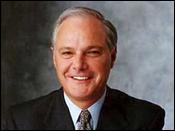A Quote by Martin Sorrell
The fast growing markets - the BRICS and Next Eleven - are the key. The next billion consumers are not going to come from the US or Western Europe - they are coming from Asia, Latin America and Africa. Formula One follows our strategy: fast growing markets, data, and digital. All those three things Formula One has. And it involves a stunning array of companies. Now that doesn't mean there can't be more.
Related Quotes
Private equity capital in each of those markets Europe and Asia - while those markets have very different characteristics - fills a niche where either strategic investors or the public markets don't go, or don't want to go for some particular reason. I think that's going to continue to be the case going forward.
It was shameful that, after Haiti, Colombia was the second most unequal country in Latin America. But we've achieved some things; the inequality is coming down, and coming down fast. The growing economy has provided us with the funds to finance a very progressive social policy that has reduced extreme poverty. We have the lowest inflation rate of all Latin-America countries and the highest growth rate.
We love Formula One and think Formula One's great. But we think Formula E is different. We would be making a big mistake if we tried to compete with Formula One and be similar to Formula One, we have to be radically different to Formula One to have a chance of survival. I don't mean survival by beating Formula One but co-existing complimentary to Formula One.
In conversations and visits with friends from Africa, Asia, Latin America, the Middle East, and Eastern Europe I am often struck by the gaps in our Western theological approaches. The most common texts used in evangelical schools have been written in the US, UK, and Australia. However, they miss some fundamental contextual issues.

































